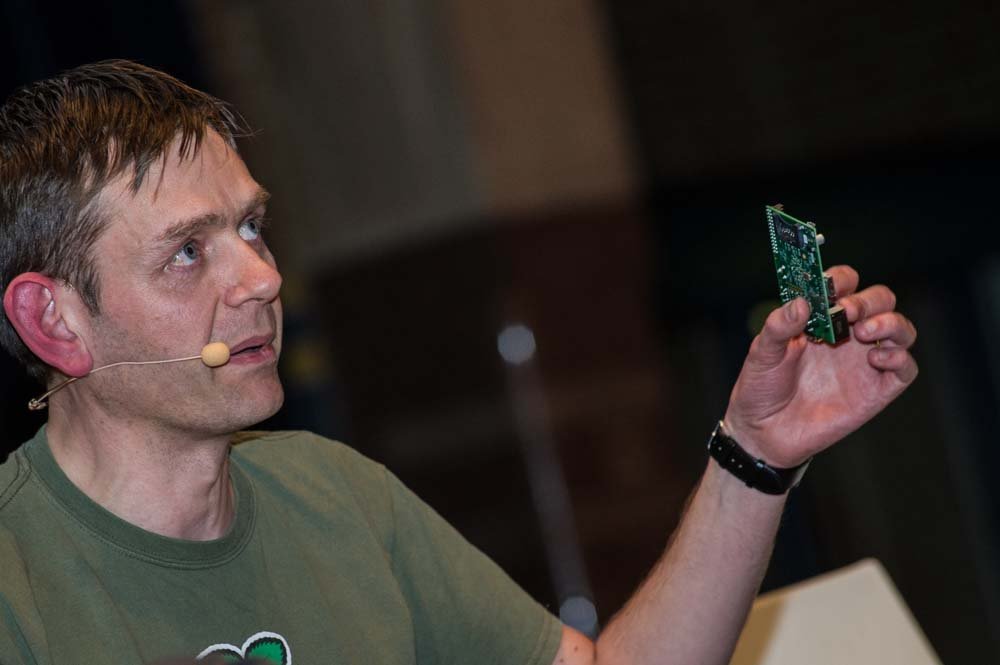One of the founders of Raspberry Pi, a Cambridge, UK-based foundation with a charitable aim – teaching kids how computer systems actually work – was “slightly worried” that the first production run of its affordable, credit-card sized computer wouldn't sell out.
The goal was to produce about 10,000 units, but co-founder Eben Upton was concerned that they might be getting ahead of themselves a bit. When the pre-ordering process was opened, roughly 100,000 people jumped on board on the same day.
It's a story relayed by Raspberry Pi's director of engineering, Gordon Hollingworth, in a candid conversation with yours truly at the API Strategy & Practice Conference held in Amsterdam last this week.
Turns out the worry about the interest from kids and tinkerers was indeed unwarranted.
Approximately 2.5 million Raspberry Pis have been shipped by the foundation – or rather its distribution partners – to date, and Hollingworth says he's now working on a number of exciting additional projects that he, unfortunately, can't discuss in much detail.
In a video interview, which you can watch above, Hollingworth also tells me that the focus of the foundation is still squarely on its primary charitable aim – teaching kids what computers are, how they are built, and how they can be programmed.
But, of course, children are hardly the only ones using Raspberry Pi to build cool and useful stuff. Legions of 'makers' have jumped on the opportunity to purchase the cheap – the most powerful Raspberry Pi costs only $35 – hackable computer to create a wealth of applications and hardware setups on top of it (case in point: behold the 'smart kegerator').
Right now, the focus of Hollingworth and his team (which is surprisingly small, only 4-5 engineers strong) is on the improvement of the software. While there may at some point be a next iteration of the Raspberri Pi hardware, it certainly sounds like that's quite some time away.
If you're interested in learning more about Raspberry Pi's future, you're invited to watch the following 30-minute on-stage interview from the API Strategy conference:
https://www.youtube.com/watch?v=QhOa8UsvxDs


